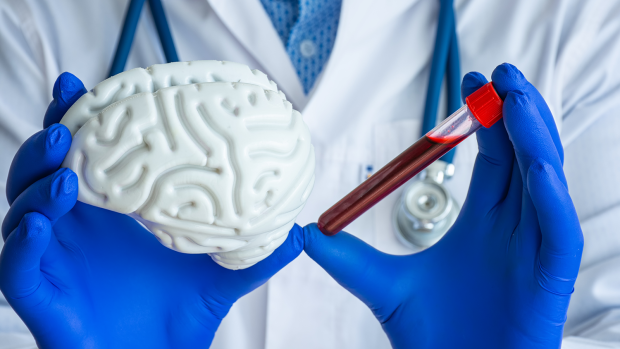What a pile of shit! Do you not understand that biomarkers DO ABSOLUTELY NOTHING to get survivors recovered. A valid question: Are you a blithering idiot or not?
NYU researchers partner with FDA to identify biomarkers for stroke rehabilitation
A unique collaboration between the engineering sector (NYU Tandon), the clinical sector (NYU Langone), and the regulatory sector (the U.S. Food and Drug Administration) will bring biomarker data to bear on neurorehabilitation technology.

BROOKLYN,
New York, Wednesday, September 28, 2022 — Stroke is the leading cause
of age-related motor disabilities and is becoming more prevalent in younger populations as well. But while there is a burgeoning marketplace
for rehabilitation devices that claim to accelerate recovery, including
robotic rehabilitation systems, recommendations for how and when to use
them are based mostly on subjective evaluation of the sensorimotor
capacities of patients who use them. (What you really need is an objective diagnosis which leads directly to EXACT PROTOCOLS THAT DELIVER RECOVERY! Call it by the correct term; objective diagnosis.)
S. Farokh Atashzar, assistant professor of Electrical & Computer Engineering and Mechanical & Aerospace Engineering at the NYU Tandon School of Engineering and the director of the Medical Robotics and Interactive Intelligent Technologies (MERIIT) Lab; in collaboration with John-Ross Rizzo, associate professor of Biomedical Engineering at NYU Tandon and Ilse Melamid Associate Professor of rehabilitation medicine at the NYU School of Medicine, are working with Dr. Ramin Bighamian from the U.S. Food and Drug Administration (FDA) to design a regulatory science tool (RST) based on data from biomarkers in order to improve the review processes for such devices and how best to use them.
The team will design and validate a robust recovery biomarker enabling a first-ever stroke rehabilitation RST based on exchanges between regions of the central and peripheral nervous systems.
“There is currently no approved RST for assessing the efficacy of rehabilitative devices for post-stroke motor recovery,” explained Atashzar. “This unique collaboration will shed light on how neurological markers can demystify the complex patterns of neural communication, realizing an objective ‘neurophysiological window to degradation in the interaction between anatomy, activation, and pathway in post-stroke patients.”
The research team will also promote FDA regulatory science on next-generation brain-machine interfaces. Additionally, the project will include seminars and undergraduate research to promote STEM education with a focus on engaging students from underrepresented groups.
The project is supported by the U.S. National Science Foundation.
“This project exemplifies how, as we build our expertise in areas like neural engineering, we are cultivating a highly collaborative research atmosphere — across disciplines such as data science and medicine, between Tandon and other schools at NYU, and spanning the lab and the classroom — all with the greater good in the mind of helping patients,” said Jelena Kovačević, Dean of NYU Tandon. “The importance of this work with the NYU School of Medicine speaks for itself, but it is also heartening to see validation of it from both the FDA and NSF.”
No comments:
Post a Comment